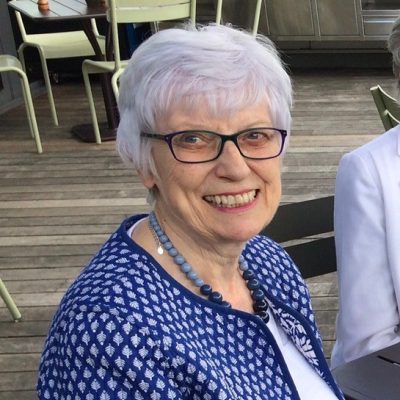Many people are dying every day without knowing Jesus or understanding that God loves them. In fact, a recent survey discovered that only 38 per cent of the UK population called themselves Christian and only 10 per cent actually ever attended church. Whilst these troubling figures are challenging for the ministry of the whole church, they are particularly relevant to those ministering to the dying in a hospice setting.
“My only aim is to complete the task the Lord Jesus has given me – the task of testifying to the good news of God’s grace” (Acts 20:24). These words of Paul were on my mind when I became a member of the pastoral team at the local hospice. I had assumed it would be part of my responsibility not only to express God’s love by listening and caring, but also by “testifying to the good news”.
But I discovered that in a hospice setting evangelism is not part of the chaplaincy’s ethos. Indeed, the chaplaincy team’s task is to love and accept people compassionately just as they are, discovering and understanding their individual spiritual journey whatever their beliefs or background. I learnt that if patients ask questions about the Christian faith they should be answered simply and honestly, but there should be no heavy theological discussions and definitely no proselytising. Rather than trying to change a person’s belief, chaplains try to help individuals find the truth of their own journey, enabling them to accept what is happening to them, make a good ending, and achieve a peaceful death.
It’s a common assumption that the dying will be eager to hear the gospel, but actually many dying people tend to meditate on what was important to them before their illness. It can be hard to see someone die who does not appear to have found hope and peace in Christ. A case in point was Michael (name changed for confidentiality). He had just heard bad news of his prognosis, was bitter about his poor relationship with his sons, did not believe in a loving God, and could see little value in the time he had left.
Having been told my role was not to seek deathbed conversions, I tried to show Michael God’s love both through my care and friendship, and also by encouraging him to reconcile with his sons, whilst hoping he would ask questions so that I could at least “give a reason for the hope that I had” (1 Peter 3.15).
But he remained disinterested and hard-hearted to the end. Becoming close to Michael helped me begin to understand I am not there to convert anyone, but simply to ‘be there’, coming alongside the sick and dying as a loving and compassionate friend. However, by deciding he is entitled to his own opinion that there is no God, have I subconsciously absorbed participation in postmodern culture where there are many truths, instead of recalling that the gospel of Jesus is the absolute truth that he needs to hear?
I am struck by John’s words, “I have no greater joy than this – to hear of my children walking in the truth” (3 John 4). But rather than ‘walking in the truth’ with Michael, and perhaps being insensitive to his own beliefs, this school of thought suggests it is more appropriate to be ‘walking in his shoes’ to help him be real and accepting of his situation. But if I am really honest, it can be more painful to simply ‘be where they are’ when like Michael they remain disinterested in God, than when they find solace and hope in believing and accepting His love for them.
So, how can Christian helpers witness despite these many challenges? Our faith gives us another dimension to the care we can offer in being able to lift patients to God in prayer. It is surprising how often non-believers are grateful for prayer despite not believing themselves. We love and care for them holistically – physically, psychologically and spiritually.
God’s love can be shown by supporting the family at the bedside and caring for them in either their faith or their disbelief. Weeping with the weeping and helping families seek reconciliation are important parts of the chaplain’s task. Holding crosses are a helpful non-verbal way to stimulate people’s thoughts at this part of their journey and are often gratefully received even by non-believers.
We can pray for the Holy Spirit’s discernment in knowing how to answer questions of faith from those who are struggling in the face of suffering and despair. However, balancing the tension between sharing the gospel with the dying and respecting their entitlement to their own beliefs and opinions is a continuing challenge for me. I can only pray that by ‘walking in their shoes’ believers and non-believers alike will feel heard, loved and valued to the last moment of their lives. What do others think?
Photo by Matthias Zomer


